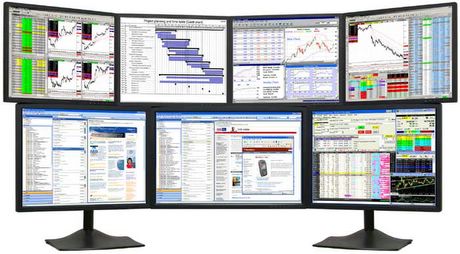
The TFT or LCD screen is one of the most expensive component of your notebook or desktop computer and they're very sensitive to dust, fingerprints or even when you cough or sneeze without covering the mouth and nose.
Unlike the standard CRT monitors with Glass screens, you are not advised to clean an LCD Monitor by wiping it with a piece of dry lint-free cloth since the sensitive display is likely to get scratches from dust particles.
So how do you clean an LCD monitor screen without buying any of those expensive LCD Monitor Cleaner solutions or Monitor Wipes available in the market ? We look at some proper methods and precautions before you clean the monitor [should apply to HDTVs, projection TVs and Plasma TVs as well]
Think of LCD Displays just like the soft and delicate skin of your newborn baby - Be very gentle and never put even the slightest pressure on the computer screen with your hand.
Second, you need to find a piece of soft cloth - old cotton handkerchiefs lying in your mom's wardrobe should be fine but don't try tissue papers, toilet rolls or even shower towels as the fabric will scratch your screen permanently [like sandpaper or utensil scrubbers]
Either turn the monitor off or set the background to black and hide all the desktop icons and minimize the open windows. This will easily help you identify the dirty areas of the monitor.
To prepare the solution for cleaning LCD monitors, you will need deionized or distilled water and vinegar or iso-propyl alcohol - Don't use tap water or mineral water as they could leave white marks on the screen because of the dissolved salts.
Dilute the vinegar or IPA with distilled water [1:1] and spray this liquid on the cloth. Never ever spray liquid directly onto the LCD screen. Moisten the cloth with this home made LCD cleaner and gently move the wet cloth in just one direction - from top to bottom.
Word of Caution: Be sure that the LCD screen is dry before closing it or using the computer. Do not use any solutions that contain Acetone, ethyl alcohol, toluene, ethyl acid, ammonia, or methyl chloride. Never touch the LCD screen with your fingers as this can cause the pixels to burn out.
No comments:
Post a Comment